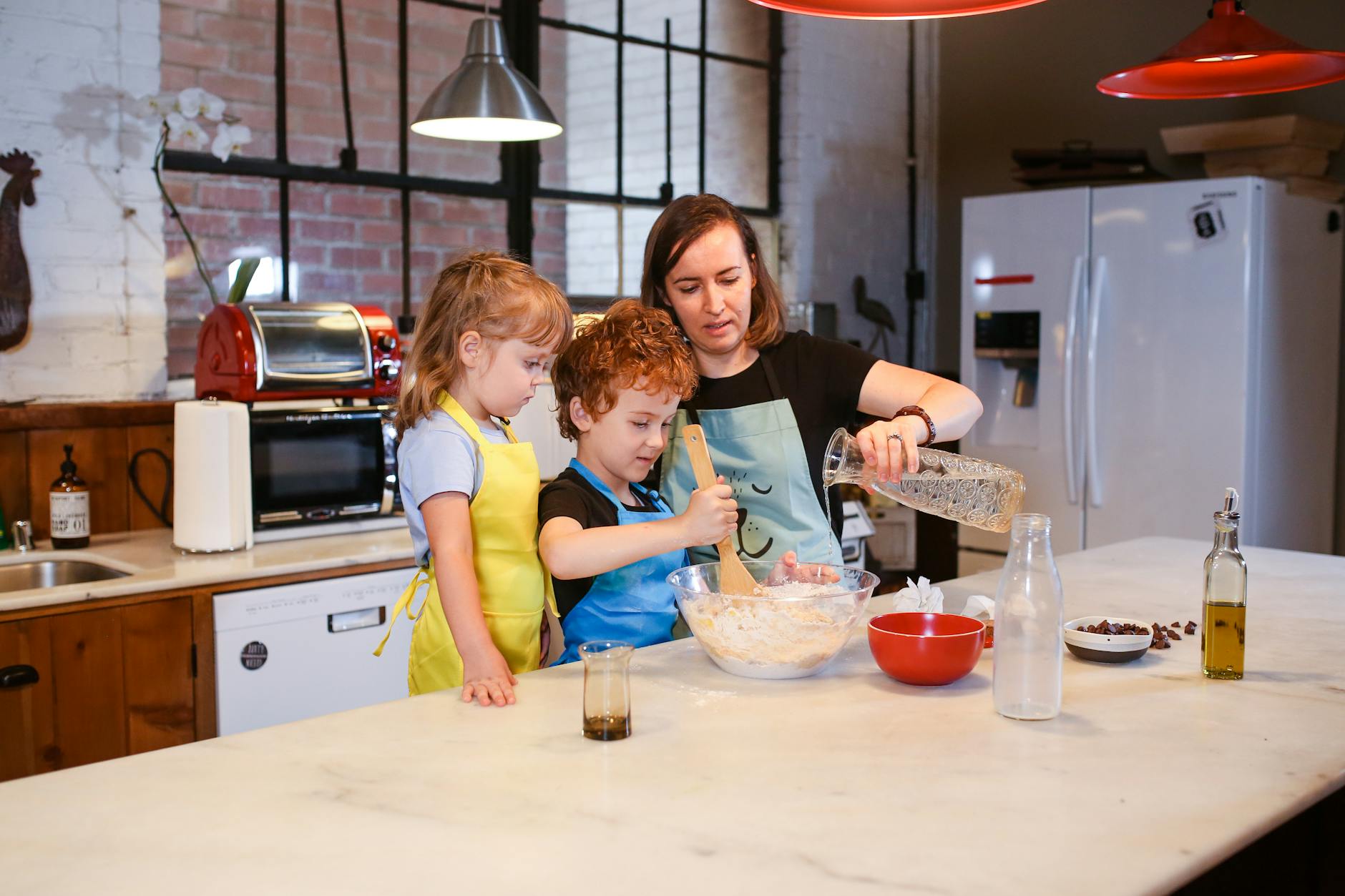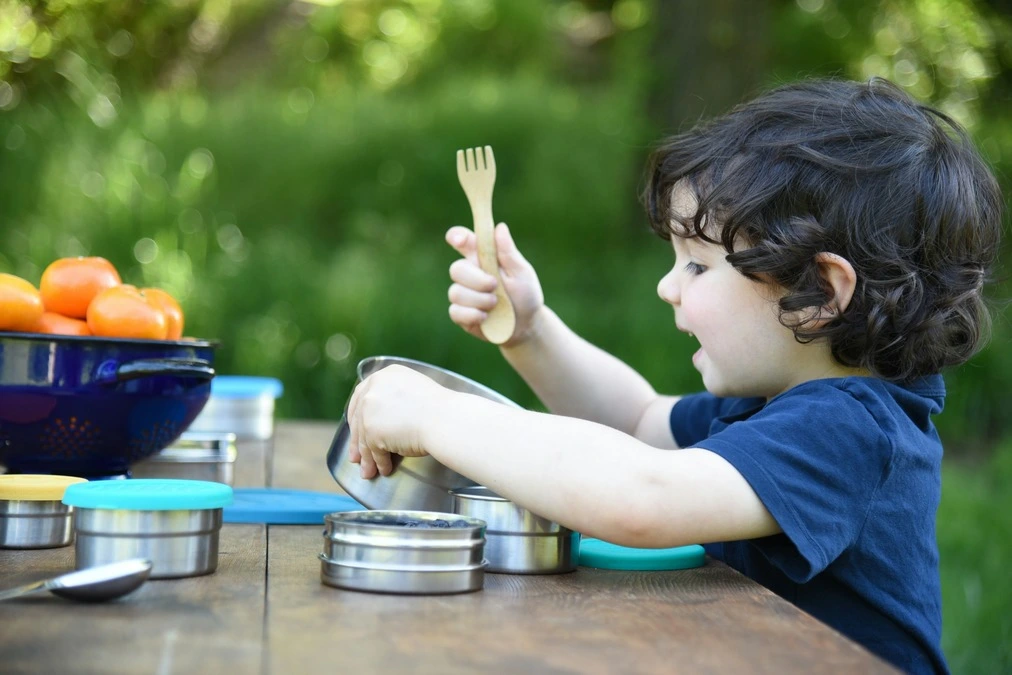Navigating the transition to preschool is a significant milestone for both parents and children. In a Montessori setting, this shift carries additional nuances that can make the difference between a stress-free experience and a challenging one. This comprehensive guide is designed to help parents, especially Montessori enthusiasts, prepare their children for preschool, ensuring their success and happiness.
Introduction
Transitioning to preschool is a big step for both you and your child. A smooth transition can set the tone for your child’s entire educational experience. In a Montessori environment, the principles of independence, exploration, and respect are paramount. This guide will walk you through practical steps to prepare your child for preschool, offering insights into the Montessori method, tips for creating a Montessori-friendly home environment, and advice on collaborating with teachers. By the end, you’ll feel confident and equipped to support your child’s exciting new chapter.
Understanding the Montessori Approach to Education
For parents new to the Montessori method, it’s essential to understand its core principles. Montessori education emphasizes self-directed activity, hands-on learning, and collaborative play. In a Montessori classroom, children make creative choices in their learning, while the teacher offers age-appropriate activities to guide the process.
You can read about montessori principales
Child-Centered Learning
Montessori education is child-centered rather than teacher-directed. This means that the focus is on the child’s learning process instead of the teacher’s instructional methods. Children are encouraged to explore and learn at their own pace, fostering a love for learning.
Prepared Environment
The Montessori environment is meticulously prepared to encourage independence and exploration. Everything from the furniture to the learning materials is designed to be accessible and engaging for children. This environment supports various learning styles and developmental stages.
Role of the Teacher
In a Montessori classroom, the teacher acts as a guide rather than a traditional instructor. They observe and understand each child’s needs and interests, providing the appropriate resources and support to facilitate self-directed learning.
Preparing Your Child for Preschool
A smooth transition starts at home. Here are some practical Montessori-inspired tips to prepare your child for preschool:
- Setting up a Montessori Environment at Home Creating a Montessori environment at home can make the transition to preschool much smoother. Start by making your home child-friendly. Use low shelves for toys and books, and ensure that everyday items are within your child’s reach. This encourages independence and allows your child to explore their interests.
- Organize Learning Spaces Designate specific areas in your home for different activities, such as reading, playing, and learning. Use baskets and trays to keep materials organized and accessible. This helps children understand the concept of order and responsibility.
- Natural Materials Choose natural materials like wood, glass, and metal over plastic. These materials provide a sensory-rich experience that is more engaging and aligned with Montessori principles.
- Rotate Toys and Activities Rather than overwhelming your child with too many options, rotate toys and activities regularly. This maintains interest and encourages focused, intentional play.
- Developing Independence and Fine Motor Skills Independence is a key component of Montessori education. Encourage your child to take part in daily activities like dressing themselves, pouring water, and cleaning up. These tasks not only build confidence but also develop fine motor skills.
- Practical Life Activities Incorporate practical life activities into your daily routine. Simple tasks like buttoning, zipping, and tying shoelaces help improve hand-eye coordination and fine motor skills.
- Art and Craft Provide opportunities for your child to engage in art and craft activities. Drawing, cutting, and pasting are excellent for developing fine motor skills and creativity.
- Montessori Tools Invest in Montessori tools and materials that are designed to enhance fine motor skills. Items like threading beads, stacking blocks, and lacing cards are both educational and fun.
- Encouraging Social Skills and Group Play Social skills are crucial for a smooth transition to preschool. Encourage your child to play with others, share, and take turns. Arrange playdates and group activities to help your child become comfortable in social settings.
- Role-Playing Engage in role-playing games to teach your child about different social scenarios. This helps them understand social cues and develop empathy.
- Group Games Introduce group games and activities that require teamwork and cooperation. This prepares your child for structured group activities in preschool.
- Storytelling Read stories that focus on friendship, sharing, and kindness. Discuss the characters and their actions to help your child understand social interactions.
Partnering with Your Child’s Preschool Teacher
A strong partnership between parents and teachers is essential for a successful preschool experience. Effective communication and collaboration can help ensure that your child’s needs are met both at home and in the classroom.
- Effective Communication with Teachers Maintain open lines of communication with your child’s teacher. Attend parent-teacher meetings, and don’t hesitate to reach out with any questions or concerns. Understanding the teacher’s approach and expectations can help you support your child’s learning at home.
- Regular Updates Request regular updates on your child’s progress and any areas that may need attention. This helps you stay informed and involved in your child’s education.
- Collaborative Goals Work with the teacher to set collaborative goals for your child’s development. This creates a unified approach to your child’s education.
- Feedback Provide constructive feedback to the teacher about what works well at home and any challenges you may be facing. This helps create a supportive learning environment for your child.
- Incorporating Montessori Principles at Home Reinforce what your child learns in preschool by incorporating Montessori principles into your home routine. Create opportunities for hands-on learning, encourage exploration, and respect your child’s independence.
- Consistent Routine Establish a consistent routine that aligns with the structure of the preschool day. This helps your child feel secure and understand what to expect.
- Learning through Play Encourage learning through play by providing educational toys and activities that promote curiosity and creativity.
- Respect for Independence Respect your child’s independence by allowing them to make choices and take responsibility for their actions.
Common Challenges in Transitioning to Preschool and How to Overcome Them
Transitioning to preschool can come with its own set of challenges. Understanding these challenges and knowing how to address them can make the process smoother for both you and your child.
- Separation Anxiety Separation anxiety is common in young children starting preschool. To ease this anxiety, establish a goodbye routine that is consistent and reassuring. Allow your child to bring a comfort item from home, and reassure them that you will return.
- Gradual Introduction Gradually introduce your child to the preschool environment by attending orientation sessions or short visits before the first day.
- Stay Positive Stay positive and confident when dropping off your child. Children pick up on their parents’ emotions, so maintaining a calm demeanor can help ease their anxiety.
- Connect with Teachers Encourage your child to connect with their teacher. Building a relationship with a trusted adult can provide comfort and security.
- Adjusting to Structured Group Activities Preschool often involves structured group activities that may be new to your child. Help them adjust by practicing similar activities at home, such as group games, storytime, and circle time.
- Practice Following Instructions Practice following instructions through simple tasks and games. This helps your child understand the importance of listening and cooperating.
- Group Playdates Arrange playdates with other children to help your child become accustomed to group dynamics and teamwork.
- Positive Reinforcement Use positive reinforcement to encourage participation in group activities. Praise your child’s efforts and celebrate their achievements.
Empowering Your Child’s Success in Preschool with Montessori Principles
A smooth transition to preschool sets the foundation for your child’s educational success. By understanding the Montessori approach, preparing your child at home, and partnering with teachers, you can create a supportive and enriching environment for your child’s growth.
Recap of Key Takeaways
- A Montessori environment fosters independence, exploration, and respect.
- Preparing your child at home involves creating a Montessori-friendly space, encouraging independence, and fostering social skills.
- Effective communication and collaboration with teachers enhance your child’s preschool experience.
- Addressing common challenges like separation anxiety and adjusting to group activities ensures a smooth transition.
Encouragement for Parents on Their Role in the Transition Process
Remember, you play a crucial role in your child’s transition to preschool. Your support, encouragement, and involvement make a significant difference in their confidence and success. Celebrate each milestone and be patient with the process.
Next Steps for Further Learning and Support in Montessori
Stay informed and connected with the Montessori community. Join parent groups, attend workshops, and explore resources to deepen your understanding of Montessori principles. If you need personalized guidance, consider booking a session with a Montessori consultant or educator.
By taking these steps, you’re not only preparing your child for preschool but also setting the stage for a lifelong love of learning.






